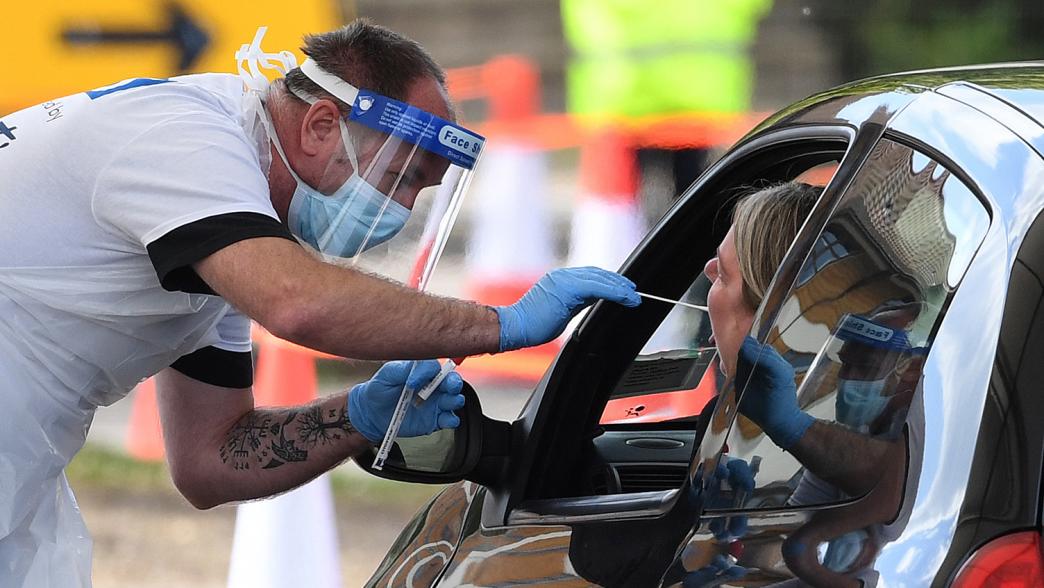Five questions the government should answer on coronavirus contracts
The public will lose trust in the government if it is kept in the dark about contracts which are vital to the lifting of the lockdown.

The public will lose trust in the government if it is kept in the dark about contracts which are vital to the lifting of the lockdown, argues Tom Sasse
The government has come under fire for excessive secrecy over outsourced contracts essential to its coronavirus response and lockdown exit strategy. These contracts include hiring consultants to support its procurement of Personal Protective Equipment (PPE) and the rollout of testing, as well as appointing a major contractor to run its contact tracing system.
The speed in which decisions are taken matters in a crisis, but so does transparency. If decisions are to be scrutinised and public trust is to be maintained, the government needs to answer some basic questions.
1. What has the private sector agreed to run and deliver for the government?
The Cabinet Office announced that Serco will operate contact tracing facilities. It will provide up to 15,000 of its own staff or employ subcontractors to run the call centres that will contact those at risk of infection. It has also been revealed that Deloitte is advising the government on its strategy for testing, as well as sourcing and distributing PPE.
But beyond that, very little is known about these contracts. In several areas, such as Deloitte’s role in PPE procurement, what the companies are actually doing remains opaque. Suppliers appear to be interacting directly with the firm and have complained about its poor handling of processes. It is unclear whether Deloitte has been brought in to provide advice or additional operational capacity for the sourcing effort.
2. How much are companies being paid?
Contract award notices, which typically state how much will be spent on the contract, have not been published. Nor are there any details about what the payment terms are – for instance whether companies are being paid by results.
It is understandable that government is not following usual procurement processes – it is trying to deliver vital equipment and services with extreme urgency. But where large amounts of public money is being spent – the Guardian has reported over £1bn has been spent on emergency coronavirus contracts – the public has a right to know. The need to make speedy decisions does not prevent government from being open about how it is spending money.
3. How did the government decide to outsource these services?
A key test for public confidence is knowing what processes departments undertook to decide how to deliver these critical services. Did they carry out what is known as a ‘make vs buy decision’, which the Cabinet Office has outlined as best practice, to ascertain that the private sector was best placed to take on the task? What conversations did they have with other parts of the public sector, such as local authorities and the NHS, about how these systems should be run?
4. Why did the government choose these suppliers?
It is also not clear what procurement processes, if any, were used by the government. The Cabinet Office published a Procurement Policy Note on 18 March which set out the emergency measures that public bodies could use, including circumventing usual processes and directly awarding contracts without competition. This is only for reasons of extreme urgency where certain tests are met and where it is impossible to run an accelerated procedure.
Whether or not departments ran a procurement process, they still needs to explain the basis for their decisions. Why have these suppliers been chosen over others? Was it because they had specific expertise and knowledge – or an ability to deliver services quickly? How do they fit into the government’s wider strategy, for instance for delivering local testing and tracing? Answering these questions will help the public to have confidence in the way these essential services are being delivered.
5. What are the Key Performance Indicators for these contracts?
The government is nominally committed to publishing Key Performance Indicators (KPIs) about key outsourced contracts as best practice. This allows the public to see how well the contracted services are working. On coronavirus, the government has committed to being more transparent with the public, for instance by starting to publish the scientific evidence base which helped it to take key decisions and information on who sits on advisory bodies.
PPE, testing and contract tracing are three of the issues of greatest concern to the public right now. The government should state what the contract KPIs are and publish details about performance regularly.
- Supporting document
- lifting-lockdown-how-approach-coronavirus-exit-strategy.pdf (PDF, 452.09 KB)
- Keywords
- Outsourcing Health
- Publisher
- Institute for Government